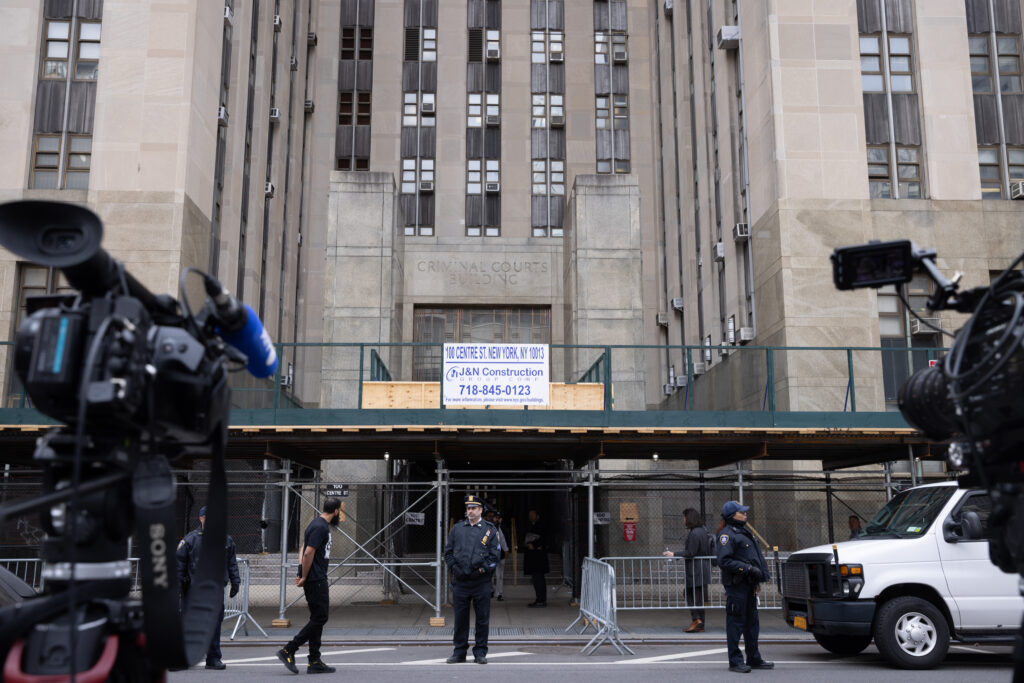Again, you have no substantive rebuttal, so you spew more garbage.
Your own link said why they don't pursue FECA:
"The key questions are whether “unlawful means” were used and whether this statute is preempted by federal law."
Because FECA is a federal law, it would trigger the preemption argument. So you need some other act to satisfy the "unlawful means" in 17-152.
Eisen knows this is a problem, so he tries to erase it by pretending "unlawful" doesn't really mean "illegal", it just means "not authorized":
"Under New York law, “unlawful means” appears to be construed broadly—and is not limited to crimes (which would therefore require yet another predicate crime)."
See what he does?
Eisen cites the 100 year-old case that supposedly says "unlawful" means "not authorized".
“unlawful means” as written in another statute does not necessitate “the commission of a crime.” Instead, the court held that “unlawful means” simply refers to conduct “unauthorized by law.”
Dumb argument, for the reasons I stated. And out of context.
The case Eisen was citing was against someone advocating violent overthrow of the government.
The statute said:
-------------------------------------
"§ 161. Advocacy of criminal anarchy.
Any person who:
1. By word of mouth or writing advocates, advises or teaches the duty, necessity or propriety of overthrowing or overturning organized government by force or violence, or by assassination of the executive head or of any of the executive officials of government, or by any unlawful means; or,
2. Prints, publishes, edits, issues or knowingly circulates, sells, distributes or publicly displays any book, paper, document, or written or printed matter in any form, containing or advocating, advising or teaching the doctrine that organized government should be overthrown by force, violence or any unlawful means; or,
3. Openly, wilfully and deliberately justifies by word of mouth or writing the assassination or unlawful killing or assaulting of any executive or other officer of the United States or of any State or of any civilized nation having an organized government because of his official character, or any other crime, with intent to teach, spread or advocate the propriety of the doctrines of criminal anarchy; or,
4. Organizes or helps to organize or becomes a member of or voluntarily assembles with any society, group or assembly of persons formed to teach or advocate such doctrine,
Is guilty of a felony and punishable by imprisonment for not more than ten years, or by a fine of not more than five thousand dollars, or both."
------------------------------------------------
The statute uses the language "or any unlawful means" because it cannot specify every possible way to overthrow a government. The crime is the advocacy to overthrow the government.
The judge said in his decision:
"The words "unlawful means" as used in the statute need not be construed as limiting the provisions thereof to the advocacy of the overthrow of government by the commission of a crime, and may be held to have been used in the sense of unauthorized by law, in which sense those words are sometimes used in criminal statutes."
<...>
"In so far, therefore, as it is competent for the Legislature to enact laws to prevent the overthrow of government by unauthorized means, I am of opinion that the initial and every other act knowingly committed for the accomplishment of that purpose may be forbidden and declared to be a crime.
People v. Gitlow, 195 A.D. 773, 791 (N.Y. App. Div. 1921)"
Applying that logic to the words "unlawful means" in 17-152 is renders the words meaningless.
Some actual illegal behavior has to be planned before you can claim a criminal conspiracy has happened.
If you take out "unlawful means", the statute makes all electioneering activity illegal. It's absurd.

Any two or more persons who conspire to promote or prevent the election of any person to a public office
by unlawful means and which conspiracy is acted upon by one or more of the parties thereto, shall be guilty of a misdemeanor.

www.justsecurity.org



